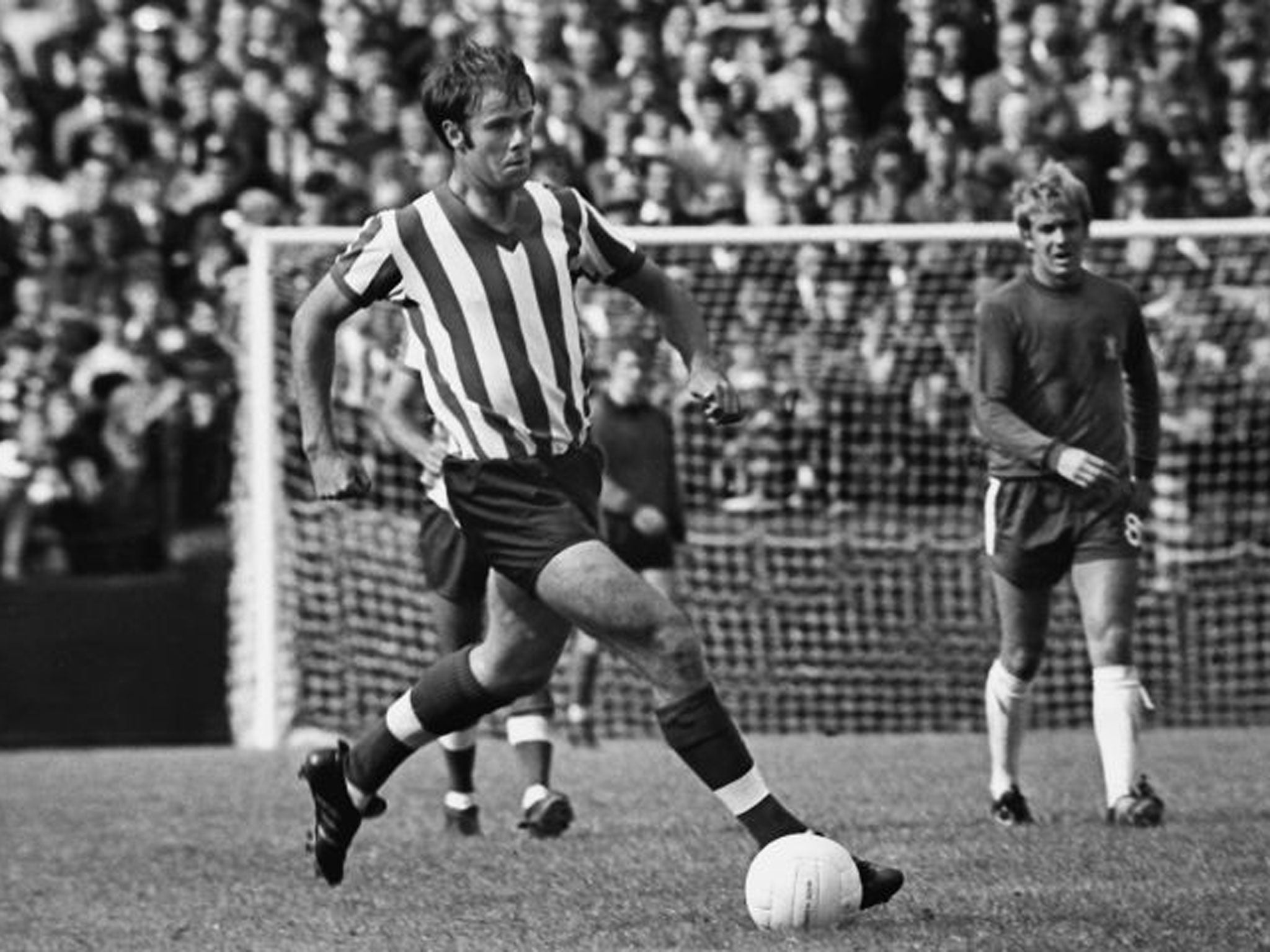Your support helps us to tell the story
From reproductive rights to climate change to Big Tech, The Independent is on the ground when the story is developing. Whether it's investigating the financials of Elon Musk's pro-Trump PAC or producing our latest documentary, 'The A Word', which shines a light on the American women fighting for reproductive rights, we know how important it is to parse out the facts from the messaging.
At such a critical moment in US history, we need reporters on the ground. Your donation allows us to keep sending journalists to speak to both sides of the story.
The Independent is trusted by Americans across the entire political spectrum. And unlike many other quality news outlets, we choose not to lock Americans out of our reporting and analysis with paywalls. We believe quality journalism should be available to everyone, paid for by those who can afford it.
Your support makes all the difference.Dressing-room humour in professional football can be of the dark variety. Ken Jones was nicknamed "Lucky" by his colleagues in the Southampton team that won the club's first-ever promotion to the top flight of the English game in 1966, but the moniker was an ironic comment on the full-back's misfortunes with illness and injury.
Jones, who has died at the age of 68, was restricted to barely 200 senior appearances during an 11-year, three-club career that began with Bradford Park Avenue in the old Third Division and ended at Cardiff City in the Second. He enjoyed his greatest success in six seasons with Southampton, playing 92 first-team games and returning to live and work in the area.
When he joined the Saints from Bradford for £15,000 in 1965, two days before his 21st birthday, Jones earned £27 per week plus £1 for every 1,000 spectators above the 20,000 mark. After making his first appearance in a 5-1 defeat at Jimmy Hill's Coventry that September, he may have been relieved to retain the right-back berth against Wolverhampton Wanderers at The Dell four days later. Another calamitous result looked possible when an own goal by Tony Knapp put Wolves ahead after 35 seconds, but four goals by the future England striker Martin Chivers helped Southampton to an incredible 9-3 victory – all of their scoring being completed in the first hour. In an odd footnote, they signed Wolves' goalkeeper that day, Dave MacLaren, a year later.
Jones was limited to a further five outings in 1965-66 as Southampton, under the management of Ted Bates, finished runners-up to Manchester City. Although his First Division debut was delayed until the following October, it could scarcely have been more personally satisfying. At Elland Road – 15 miles from Jones' birthplace in the village of Havercroft, near Wakefield – a trademark Ron Davies header earned a 1-0 win over the then formidable Leeds United. Jones, a proud Yorkshireman, would later recall with relish that Don Revie's side "annihilated" them and "could have won by 10" had MacLaren not demonstrated why Bates had wanted him.
Throughout his six years with Southampton, Jones had to contend not only with fitness problems, but also with some accomplished rivals for the full-back positions, both of which he could fill. They included Stuart Williams, who had played for Wales in the 1958 World Cup, David Webb, a crew-cut cockney who went on to join Chelsea, Tommy Hare, Joe Kirkup, Bob McCarthy and Denis Hollywood – a Scot with whom his rivalry did not preclude a strong friendship.
Nevertheless, he played in a hat-trick of victories over Manchester United in the space of 10 months. The first two came when United were European champions and the third was a 4-1 rout of a team including George Best, Bobby Charlton and Denis Law at Old Trafford early in the 1969-70 campaign. (Davies scored with four headers and United's veteran centre-half Bill Foulkes was never picked again.) A month later, Jones played in Southampton's first European match, against Rosenborg in Norway. However, after sustaining an injury in the return fixture with United, he made only one more appearance, at Tottenham in 1970.
He left for Cardiff in a £6,000 transfer in 1971, knowing that he had achieved what appeared beyond him when, as an apprentice electrician at Monckton Colliery, near Barnsley, he was rejected by Arsenal, Aston Villa and Coventry after trials. Jimmy Scoular, Bradford's player-manager, took a chance on Jones (who had initially played up front for his pit team, which included brothers Cyril and Peter Knowles, later of Tottenham and Wolves respectively), signing him as a 17 year old. When Jones made the first of 100 League appearances for Park Avenue, at Hull in March 1963, he emulated his grandfather Aaron, who played for Barnsley, Notts County and Birmingham between 1903 and 1908.
Unlike Kevin Hector, alongside whom he developed, he was not renowned for marksmanship, though he did join the future England striker on the score sheet with the first of three career goals in a 3-3 draw with Bradford City in 1964. A year earlier he, Hector and Scoular were in the Park Avenue side that crushed City 7-3 in a League Cup derby. Reunited with Scoular at Cardiff after Southampton, "Lucky" Jones played only six times before having to retire a year later.
After football he worked as a crane-driver in Southampton docks and become well-known in Hampshire as a snooker player and coach. Jones was Southampton & District champion four times, as well as being a three-times winner at doubles. Having first picked up a cue at the age of nine, he tutored young players at his home in Chandler's Ford. Five of his protégés went on to represent England.
Kenneth Jones, footballer: born Havercroft, West Yorkshire 26 June 1944; played for Bradford (Park Avenue) 1961-65, Southampton 1965-71, Cardiff City 1971-72; married Jean (one son, one daughter); died 27 December 2012.

Join our commenting forum
Join thought-provoking conversations, follow other Independent readers and see their replies
Comments